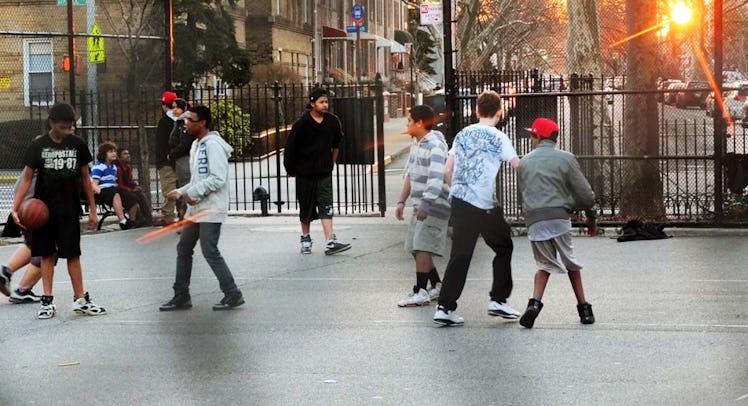How Sports Teams Could Protect Teens From Violent Gangs
They do fill a particular void for teens at risk of joining gangs, a new study suggests.

Playing team sports and joining a gang may have more in common than people thought, according to a new study. Researchers interviewed former street gang members in Chicago—Latin Kings, Satan’s Disciples, Vice Lords—and found that gang membership appears to have fulfilled the same needs often filled by team sports: excitement, social support, and an adrenaline rush.
“An in-depth understanding of what drives delinquent and criminal activities—and ways that sports and other leisure activities can be used for prosocial purposes—can help create more effective prevention, intervention and rehabilitation programs for at-risk youths and young offenders,” coauthor Liza Berdychevsky of the University of Illinois said in a press release.
For the study, Berdychevsky and colleagues interviewed a small sample of 30 former gang members, each of whom had been involved in violent crimes. They cited boredom as one of the main drivers of their drug-fueled parties and violent clashes, and spoke about how family ties and close friendships between gang members was one of main perks. Interestingly, they often referred to their violent activities in the same sort of way jocks talk about football practice.
“They even spoke about their violent acts using leisure and sports terminology,” coauthor Monica Stodolska, also of the University of Illinois, said in the release. “One man said he felt as if he were on a football team and the bystanders, fellow gang members or people in his community who encouraged these behaviors, were cheering him on from the stands.”
Based on these similarities, the authors suggest that channeling at-risk youth away from gangs and toward sports and other leisure activities could help stymie organized crime in cities. Many of the former gang members could have become captains of sports teams instead of gang leaders, the authors say and may have found just as much excitement and social support on a playing field as they did in a dark alleyway. “One of the things that struck me was how smart, charming, articulate and talented many of the interviewees are,” Kim Shinew, also of the University of Illinois, said in the release. “On several occasions, I thought, ‘Wow. If you had just made a few different decisions in your life, your future might have been so different.’”
This article was originally published on